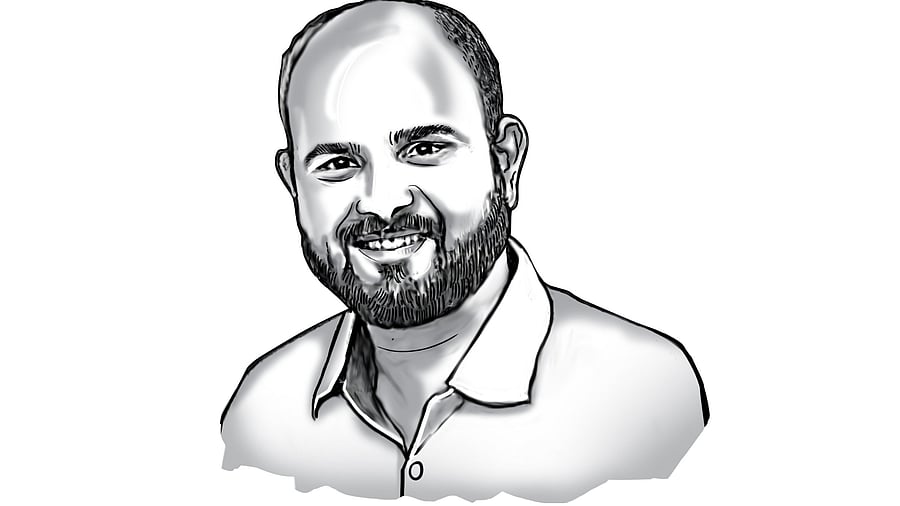
Rahul Jayaram teaches at the School of Film, Media and Creative Arts, R V University, Bengaluru @rahjayaram
Credit: Dh Illustration
Last month, a prominent young social media influencer uttered some words as part of an interviewee panel on a show and effortlessly all but damaged his reputation, business, and likely his career. It reached the ears of the Supreme Court of India that chastened him thereafter. Over the last few years, people in important government positions have mouthed worse things in public, while the honourable Court has enraptured us with its silences. This moment, rapping the young man, was a gift for the Court to garb itself as the country’s moral arbiter.
Anyway, the man had erected his curriculum vitae over years through kowtowing to those in power, conducting overly long, asinine interviews and podcasts with many shades of celebrities and daft do-it-yourself videos about work culture that in this social media era, if they work right, can help one ‘gain traction’. His rise, along with that of others like him, not just in various parts of the country, but perhaps across the world, adds heft as to why the Oxford English Dictionary chose ‘brain rot’ as its Word of the Year. Lest I sound too stringent, let me caveat this by saying, there are social media notables who’ve leveraged the space to raise important questions, arguments, and discussions.
Yet what has annoyed your columnist and unsettled him over these last many years is the whole halo built around what we call the start-up upstarts, the self-employed, the entrepreneurs, the social media stars and their blind veneration by a generation of older people who may have a touch or two of envy over the opportunities that much younger people are creating and leveraging for their benefit now. Lionising what’s new, what’s hot, what’s current has led to large mainstream legacy newspapers dedicating a whole page each day to ‘techies’, entrepreneurs, self-starters. So much discourse in the sphere where I work, higher education, appears obsessed with moulding undergraduates and postgraduates into self-employed income and employment creators. The crabby hustlers are now the winners. But are they?
Surely, such hyping of individual initiatives is misleading. Not just in India, but across many parts of the globe, the organised sectors of national economies are struggling to produce meaningful employment for skilled, semi-skilled young graduates. In such a climate, it’s facile to fashion an impression of every young person as a potential creator in their sphere. It’s now tougher to ‘sell’ to graduates the idea of being employed in an organisation or institution for long. For some who break out, like the influencer in question, there are several who don’t, and have sunk their own monies in hustling start-ups. The flip side of gainful steady employment is no longer a fetching possibility: what if you as a young student or graduate are more inclined to the boring-appearing prospect of being employed to some steady but middle-of-the-road organisation or the other for long? We’ve reached a point where that thought is almost anathema.
For all their issues (and there are so many), older notions of formal employment were a barometer of sorts of a less lucrative but steadier economy. Now it’s hard for newcomers to enter the latter. So, one has the mindless yet intentional promotion of hyper individual social media or start-up successes. It prepares the ground for said YouTubers to gain currency and leverage that into credibility. One ought to slash and burn the aura of the hustlers’ success. One expects the older lot (me and my generation and those older) to bring in some balance to the proceedings.